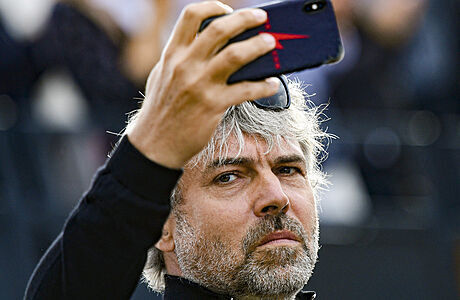PRAGUE Petr Kellner showed that even in such a small country as the Czechia, it is possible to build a truly global company. The portfolio of companies from the PPF Group is broad and extends in a number of industries across three continents.
Authorities released a photo of the helicopter in which Kellner was killed. The machine crashed into a mountain just a few meters below the ridge |
From Russia through China, Kazakhstan or France to Serbia. PPF Group NV operates in all these countries (and in many others – a total of 24 on three continents), the majority owner of which was the tragically killed businessman Petr Kellner at the weekend.
The main direction of Kellner’s foreign activities was from the beginning to the east: the entrepreneur seems to have correctly estimated at the beginning that in countries where there is no long and continuous tradition of private enterprise, it is easier to find a market hole and room for expansion. And according to his critics, this strategy also included the consideration that in countries such as Russia or China, there is weaker market surveillance and the environment will “allow” what the West would not have to go through.
Successes and losses in China
For a lay observer from the Czech Republic, Kellner’s involvement in the world’s most populous country was probably the most visible. The businessman, who never cared about the media’s attention, and even programmatically avoided them, inadvertently drew attention to PPF’s Chinese activities in 2014 as part of a business mission that accompanied President Miloš Zeman on a state visit to China.
The plane, leased by a Kellner-controlled company, also took Zeman on board (the Castle later justified it by “saving time”), which immediately sparked speculation as to whether the entrepreneur was trying to tilt top politicians to make it easier for business.
In a communist country, Kellner pursued a business that could not be called anything other than sovereign capitalist. Through the Home Credit holding company, he offered credit services to ordinary Chinese there – and Zeman praised the local authorities for their “support” of Home Credit during a meeting with Chinese President Xi Jinping.
Kellner’s activities in China, where the Communist Party decides everything important, were already so large that it was hard to imagine that they could run smoothly without a good record from top politicians there. Home Credit was the only provider of consumer loans in China, which was wholly owned from abroad, and the annual volume of loans was in the hundreds of billions of crowns.
However, Chinese business has also taught Kellner that even with good cover, trees do not have to grow into the sky. Beijing has gradually pushed for tighter supervision and regulation in the consumer lending sector (a similar process has taken place in a number of other countries, including the Czech Republic), and Home Credit’s profits in China have begun to wane.
Turn to Eastern Europe
Last year’s attempt to list shares on the Hong Kong Stock Exchange ended in bankruptcy: investors eventually withdrew in fears of overvaluation and there was nothing expected about the expected billion-dollar yield from the sale of shares.
In recent years, the PPF Group has invested heavily in telecommunications and media and, in addition to activities on Czech soil (eg the acquisition of mobile operator O2, has indirectly affected about half of the Czech population; since last year, Kellner has dominated the most watched Czech TV channel TV Nova).
Here, too, Kellner’s main focus was on the East, this time within Europe: in 2018, the group took over several Central and Eastern European companies that originally belonged to the Norwegian company Telenor. Last year, PPF completed the acquisition of the media company CME, which operates in Bulgaria, Romania, Slovakia and Slovenia – and through TV Nova also in the Czech Republic.
–

